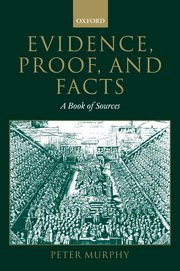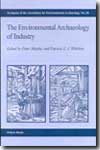Evidence, Proof, and Facts is a source book designed to bring together some of the most important primary and secondary materials which underlie the 'New Evidence Scholarship'. While the law of evidence has traditionally dominated jurisprudential treatment of the subject, evidence is in truth a multi-disciplinary subject, comprising fundamental issues in the fields of logic, probability theory, epistemology, and psychology.
Among the issues dealt with are: the rationalist epistemology of the use of evidence as a tool for the reconstruction of disputed past events; alternative epistemologies of evidence; the meaning of evidence, relevance, probative value, and weight. The editor also explores the issues of: logic and rhetoric in the context of judicial proof; the place of different kinds of probability theory in legal proof; whether legal proof is inherently mathematical or non-mathematical; the meaning of the legal standards of proof; and the role of causation in legal proof.
The editor has assembled a collection of jurisprudential material including Thayer and Wigmore, and philosophical material ranging from Aristotle and Plato to Locke, Hume, Bentham, and Mill. The mathematics includes Bayes' Rule, reproduced in its entirety. Among the contemporary writers represented from the New Evidence Scholarship school are Keynes, Schum, Twining, Eggleston, and Cohen. The materials are prefaced with an introductory essay by Professor Murphy which offers an overview of some of the key issues.
Table of Works Represented, with Abbreviations Used
Evidence, Proof, and Facts: Introductory Essay
1: The Concept of Evidence and the Law of Evidence
SECTION 1: WHAT IS EVIDENCE?
Bentham, Rationale
Schum, Foundations
SECTION 2: DEVELOPMENT OF THE LAW OF EVIDENCE
Thayer, Preliminary Treatise
Holdsworth, History
Twining, Rethinking Evidence
SECTION 3: ARE EXCLUSIONARY RULES OF EVIDENCE NEEDED?
Bentham, Rationale
Stephen, Report
SECTION 4: THE PHILOSOPHY UNDERLYING THE LAW OF EVIDENCE: OPTIMISTIC RATIONALISM
Twining, Theories
2: Logic and Rhetoric
SECTION 1: LOGIC, DEDUCTIVE REASONING, AND THE SYLLOGISM
Aristotle, Topics
Aristotle, Prior Analytics
Mill, System
SECTION 2: REJECTION OF THE SYLLOGISM AS A SCIENTIFIC METHOD
Bacon, Novum Organum
Hume, Enquiry
Schum, Foundations
SECTION 3: LOGIC, INDUCTIVE REASONING, AND INFERENCES FROM EVIDENCE
Schmidt, The Influence of the Legal Paradigm on the Development of Logic
Mill, System
SECTION 4: LOGICAL FALLACIES
Mill, System
SECTION 5: DIALECTIC AND RHETORIC
Aristotle, The Art of Rhetoric
Plato, Gorgias
Plato, Phaedrus
3: Judicial Reasoning About Facts
SECTION 1: RELEVANCE
Stephen, Digest
US Federal Rule of Evidence 401
Bentham, Rationale
Schum, Foundations
Keynes, Treatise
SECTION 2: DIRECT AND CIRCUMSTANTIAL EVIDENCE
Bentham, Rationale
SECTION 3: THE PROCESS OF JUDICIAL REASONING
Thayer, Preliminary Treatise
Wigmore, Science
SECTION 4: PROBATIVE VALUE AND WEIGHT
Bentham, Rationale
Keynes, Treatise
SECTION 5: GENERALIZATIONS
Hume, Enquiry
Bentham, Rationale
Mill, System
4: Causation
SECTION 1: PHILOSOPHICAL BASIS FOR THEORY OF CAUSE AND EFFECT
Aristotle, Physics
Locke, Essay
Hume, Treatise
Hume, Enquiry
Mill, System
SECTION 2: CAUSE AND EFFECT AS BASIS FOR INFERENCE FROM EVIDENCE
Hart and Honoré, Causation
Schum, Foundations
SECTION 3: LEGAL APPLICATIONS OF CAUSATION
Hart and Honoré, Causation
5: The Standard of Proof
SECTION 1: RELATIONSHIP OF INDUCTIVE REASONING TO STANDARDS OF PROOF
Cohen, The Probable and the Provable
SECTION 2: PROOF BY A PREPONDERANCE OF THE EVIDENCE
Rhesa Shipping Co SA v. Edmunds (The Popi M)
T.N.T. Management Pty. Ltd. v. Brooks
Cohen, The Probable and the Provable
SECTION 3: PROOF BEYOND REASONABLE DOUBT
Shapiro, Beyond Reasonable Doubt
Cohen, The Probable and the Provable
SECTION 4: DECISION THEORY IN RELATION TO STANDARDS OF PROOF
Kaplan, Decision Theory and the Factfinding Process
Tribe, Trial by Mathematics: Precision and Ritual in the Legal Process
6: Theories of Probability
SECTION 1: PROBABILITY THEORIES GENERALLY
Locke, Essay
Hume, Treatise
Bentham, Rationale
Keynes, Treatise
SECTION 2: PROBABILITY APPLIED TO HUMAN CONDUCT AND CREDIBILITY
Keynes, Treatise
Eggleston, Evidence, Proof, and Probability
SECTION 3: THE PRINCIPLE OF INDIFFERENCE
Cohen, Introduction
7: Probability: Issues of Mathematics
SECTION 1: MATHEMATICAL PROBABILITY CALCULUS
Mill, System
Schum, Foundations
Cohen, Introduction
SECTION 2: REVISION OF PROBABILITY ESTIMATES IN LIGHT OF NEW EVIDENCE: BAYES' RULE
Schum, Foundations
Bayes, Essay
SECTION 3: MATHEMATICS IN THE COURTROOM
People v. Collins
R v. Adams (No. 2)
8: Probability: Mathematical and Non-Mathematical Models
SECTION 1: MON-MATHEMATICAL PROBABILITY MODELS
Mill, System
Keynes, Treatise
Cohen, Introduction
Cohen, The Probable and the Provable
SECTION 2: PASCAL OR BACON? THE GREAT DEBATE
Tribe, Trial by Mathematics: Precision and Ritual in the Legal Process
Kaye, The Laws of Probability and the Laws of the Land
9: Alternative Epistemologies of Evidence
SECTION 1: CHANCE AND ACAUSAL CONNECTIONS
Aristotle, Physics
Mill, System
SECTION 2: THE OLDER MODES OF PROOF
Holdsworth, History
Hammurabi, Code
Manu, Laws
Supakar, The Law of Evidence in Ancient India
SECTION 3: A WOMAN'S PERSPECTIVE
Harmon, Etchings on Glass
APPENDIX 1: INFERENCE NETWORKS AND THE CHARTING OF EVIDENCE
Wigmore, The Problem of Proof
APPENDIX 2: SOME COMMONLY USED HYPOTHETICALS
Index








